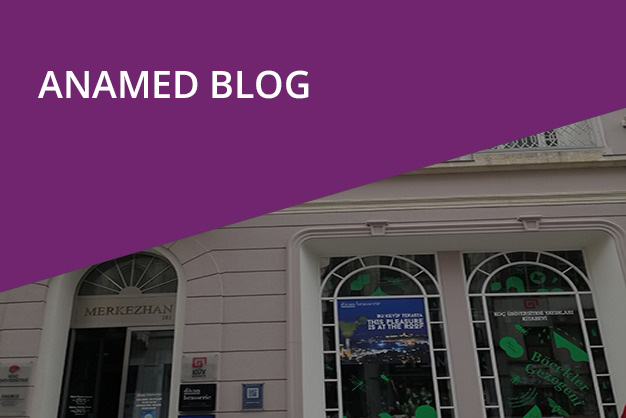
After just over a month of staying at ANAMED in Istanbul, it became clear that the coronavirus was transforming from a news item in the foreign section of the newspaper into a life-changing entity. At first, my reaction was selfish: I just published a monograph, a result of seven years of work, and after hardships, 2020 was going to be my big chance in academia. Invitations to be a keynote speaker were already “in the pocket.” Yet, I soon realized that possibly getting stuck in Istanbul in forced isolation, away from home and loved ones in the Netherlands, was not ideal. So I travelled back to The Hague in the Netherlands on Tuesday, March 17th. It was during this trip that the surrealism of the situation struck home: people wearing masks, many flights cancelled, hand sanitizer and paracetamol completely sold out, the train from Schiphol airport to The Hague virtually empty.
In my first weeks back home, I tried to continue research, with the internet as my only (but massive) repository. I first focused on finishing the few papers, chapters, and an edited volume that were already in the planning stages. It was difficult to concentrate on writing, with news coming in each day and the Netherlands being subjected to new rules: all schools were closed, vital shops stayed open, exercise outside was allowed, travel was limited only to people working in vital jobs, and people needed to stay home as much as possible, while children would be allowed to have fun at the playgrounds. This was called an “intelligent lockdown,” which is great as most Dutchmen have above-average intelligence (or so they think). With no more airplanes coming over and my horizon limited to just barely seeing the trees beyond the next apartment building, my world quickly became very small. It also became clear that the promise of 2020 was becoming more and more a deception: applications being denied is apparently a normal fact of academic life, but with scholarships being cancelled due to COVID-19 and archaeological fieldwork being cancelled (along with the income that would have generated for me), things became rather dire—ultimately rent has to be paid. What to do?
It took me some time to pick up exercising again, but once I did (a run in the park, bike rides along the coast, some weightlifting at home), it made a huge difference in mindset. Not only did I start to break all kinds of personal distance and speed records, but it helped to get a positive outlook on the way forward. The fact that it was springtime, with the cherry trees starting to blossom and all kinds of other plants undergoing the magic transformation of life, rekindled my enthusiasm for photography. So photography (Instagram: @existentialblip) became my creative outlet and my camera my trusty companion on weekly grocery trips and walks in the park. Despite a loss of immediate necessity, I continued with my biweekly Turkish lessons, albeit online. Keeping a structure in life helped me in deciding the next step.
This next step means a (temporary?) end of my academic pursuits: after taking the necessary capacity tests and interviews, I was hired to start a traineeship in Java programming development starting in the first weeks of June. Something radically different, although my programming days go back a long time: from the ages of nine to twelve I spent Friday evenings in the local library in my home village to borrow books on programming games in BASIC and Turbo Pascal! From what I have seen so far, it is exciting and challenging stuff. Now that the new realities of “life at 1.5 m distance” have settled and schools start to slowly reopen, it is time to think over the last months. My time at ANAMED was brief and confirmed the love that I have for Roman archaeology and history, but COVID-19 affirmed to me, once again, to expect the unexpected. And who knows, maybe my new programming skills may become useful for future archaeological endeavors as well.
—Rinse Willet, Post-Doctoral Fellow, 23 May 2020

